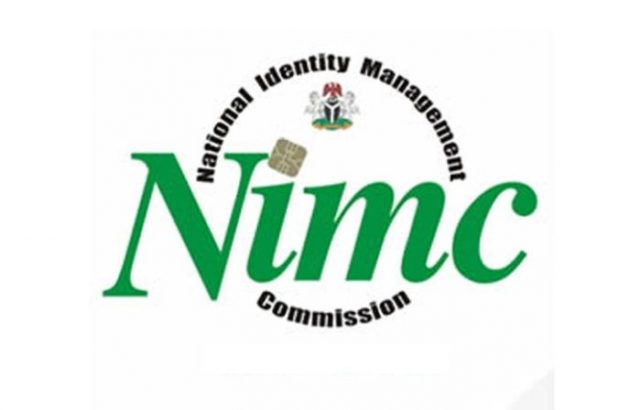The National Identity Management Commission (NIMC) has commenced a landmark capacity-building programme for all its 3,780 staff members, following a directive from President Bola Ahmed Tinubu aimed at boosting service delivery and supporting Nigeria’s digital identity agenda. The training, which cuts across all levels and departments of the Commission, is being carried out simultaneously in all 36 states and the Federal Capital Territory, Abuja.
Under the leadership of Director General and CEO, Engr. Abisoye Coker-Odusote, the training forms a central part of the administration’s Renewed Hope Agenda, which places digital identity as foundational for welfare delivery, financial inclusion, and national development. The initiative is designed to equip staff with the necessary skills to serve within an expanding identity ecosystem, while improving enrolment, identity verification services, and the security of biometric data.

According to NIMC’s management, this is the first time in the history of the Commission that every staff member is being engaged in a unified, nationwide training exercise of this magnitude. The programme is ongoing in state offices, local government units, and the Commission’s headquarters in Abuja.
President Tinubu underscored the importance of strengthening staff capacity across Ministries, Departments, and Agencies (MDAs), emphasising that effective workforce training is critical to delivering his eight-point agenda. For NIMC, this mandate is particularly urgent as millions of Nigerians now depend on the National Identification Number (NIN) for access to welfare schemes, banking services, education, telecommunications, and other essential platforms.
The training is wide-ranging, covering both technical and non-technical areas. Staff are being taught new methods in digital identity management, including the use of data capturing devices, biometric verification systems, and enrolment procedures. Customer interface training, data protection and ethics, workflow efficiency, and field operations are also key areas of focus. The aim is to sharpen employee performance, reduce errors, improve response time, and enhance the security and usability of identity services nationwide.
One of the primary objectives of this initiative is to address past challenges associated with enrolment backlogs, mismatched data, system outages, and cases of identity fraud. By equipping staff with updated knowledge and tools, the Commission hopes to reduce such setbacks, improve the NIN issuance process, and boost public confidence in Nigeria’s identity management system.
In addition to training, the programme also incorporates welfare measures and infrastructural improvements. More enrolment devices are being distributed to state offices, logistics for field operations are being upgraded, and support systems for staff welfare are being expanded. Allowances and incentives have also been introduced to motivate staff and ensure they remain committed to delivering quality service.
Reactions from NIMC staff across the country have been largely positive. Many expressed optimism that the training will help to reduce the long queues and delays often experienced at enrolment centres, as well as minimise technical disruptions. They also commended the leadership for prioritising staff welfare, seeing it as a move that will improve both morale and productivity.
Observers believe the training is timely and strategic. Nigeria is pushing toward full digital identity coverage, and as services across sectors become increasingly dependent on the NIN, public demand for reliable and efficient systems has grown significantly. A well-trained workforce is essential to meeting this demand and ensuring citizens can access vital services without unnecessary hurdles.
However, experts caution that training alone will not be enough. They argue that for the programme to have lasting impact, it must be complemented with system upgrades, improved internet connectivity, regular monitoring, and strong enforcement mechanisms. Without sustained investment in technology and infrastructure, the benefits of staff training could be undermined by systemic inefficiencies.
Another challenge is ensuring uniformity in the quality of training across all states and local government areas. Delivering consistent, high-quality instruction to staff in remote and underserved areas remains a logistical hurdle. NIMC will need to carefully monitor the process to avoid disparities in service delivery across regions.
This training initiative is part of broader reforms being implemented under Engr. Coker-Odusote’s leadership. Since assuming office, she has introduced several staff welfare programmes, including improvements in remuneration, provision of better work tools, and logistical support for enrolment officers. These reforms, she noted, are aimed at building internal capacity while also improving external service delivery for citizens.
If successful, the training could have several ripple effects. Citizens may experience faster NIN issuance, fewer cases of mismatched identity data, and more efficient verification services. This would, in turn, benefit welfare distribution, electoral processes, national security systems, banking, and telecommunications. Enhanced accuracy in identity verification will also reduce fraud and impersonation, strengthening trust in government systems.
Ultimately, the nationwide staff training represents a major step in Nigeria’s journey toward comprehensive digital identity coverage. While the programme is ambitious, its success will depend on sustained follow-through, technological improvements, and continuous monitoring. For Nigerians, the expectation is clear: better, faster, and more secure identity services that will form a reliable foundation for social welfare and national development in the digital age.
Support InfoStride News' Credible Journalism: Only credible journalism can guarantee a fair, accountable and transparent society, including democracy and government. It involves a lot of efforts and money. We need your support. Click here to Donate
